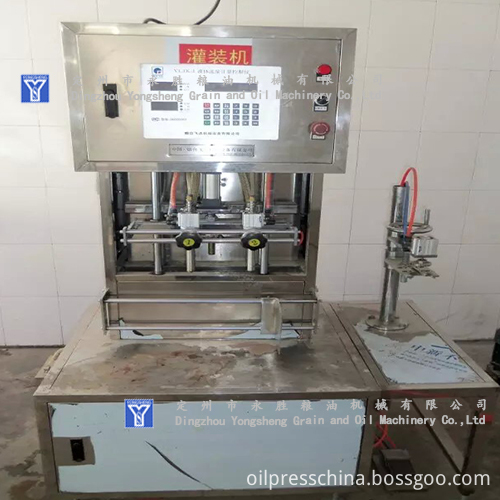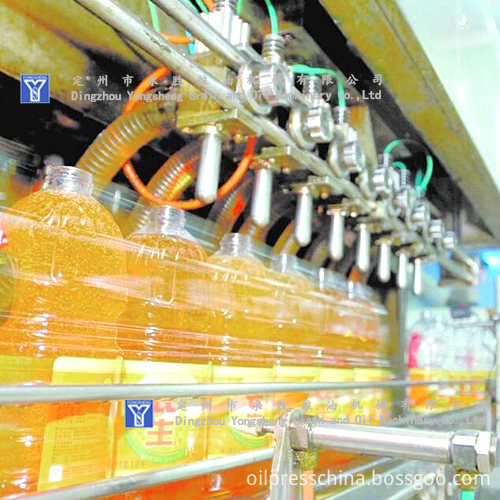The fuel tax has risen three times.
My little heart has been hit three times in succession. Slow down, I have ten questions.
First, when the oil price is lowered, the tolerance of the tax-increased people will become stronger?
The relevant departments said that the market questioned whether the oil price drop means that the consumption tax must rise. Experts believe that these three times only use the price reduction window, so that the price increase of the consumption tax can be digested within the price reduction range, but it does not mean that this is inevitable. s Choice. Zhu Qing, a professor at Renmin University of China: We have raised the tax rate on gasoline consumption tax three times. In fact, it has been improved in stages. There is no one in place. The first is to consider the psychological endurance of ordinary people.
I am swollen and feel that the relevant departments regard the Chinese people as Ah Q as fools. The oil price has dropped and the fuel tax has risen. Generally, it does not cost more money, but the international oil price has dropped. According to the part of the fuel tax pricing mechanism that should be lowered, is the people still not enjoying it? The oil price has dropped and the fuel tax has risen. Is it still rising? The original low-income fans are looking forward to the 11-day drop in oil prices, enjoying low oil prices, looking forward to the hope, the oil price has dropped, the fuel tax has risen, a pot of cold water has poured down, hopes to become disappointed, cold, fools can not feel .
Second, there is no pain in the people who have taxed in increments?
Zhu Qing, a professor at Renmin University of China, also said: If we improve one step at a time, such as raising 6 hair per liter, it can be done, but the psychological pressure of the people is greater.
Ok, is it possible that there are four more tax increases in three consecutive times, and the psychological endurance of the people has increased? It seems that ordinary people will not be accounted for, and does not say that the total amount of tax increase is actually placed there, so that the tax has risen three times and five times, the short pain has become a long pain, and it will hurt in a few days, who can stand it. Originally solved the problem with a knife, you became a three-knife, repeatedly cutting and scratching, like Ling Chi, the disappointment, dissatisfaction, resentment, pain of tax increase was repeatedly recalled, repeated strengthening, so, really long pain is better than short pain, not as good as one step In place, it hurts, and concentrates on forbearance. Is it that the price of oil will rise in the future, and the fuel tax will rise to the top, will you not worry about the affordability of the people?
Third, is the tax increase legal? Is tax increase really in line with the rule of law?
After many doubts, some experts said that the adjustment of fuel tax is so legal. Shi Zhengwen, a professor at the Institute of Finance and Taxation of China University of Political Science and Law, believes that according to the authorization of the National People's Congress and the provisions of the "Legislation Law", the National People's Congress and its Standing Committee have the power to make decisions and authorize the State Council to formulate administrative regulations on some of these matters according to actual needs. And according to the actual needs of economic and social development, the relevant tax system will be adjusted one after another.
“Provide administrative regulations for some of these matters first,†then? There should be the following. But after 30 years have passed, there is still no following. This expediency has been going on for 30 years. In the past 30 years, China’s economic and political fields have undergone earth-shaking changes. Only this authorization is unchanged, and this authorization is precisely a violation of the statutory principle of taxation. This is a big contradiction. Thirty years ago, the National People's Congress authorized the State Council to prescribe administrative regulations on some matters. Thirty years later, the 18th National Congress of the Communist Party of China proposed to rule the country according to law and the taxation was legal. When this contradiction arises, are we obeying the regulations 30 years ago? The decision of the current ruling party? The answer is obvious.
According to the rule of law of modern fiscal taxation, the so-called "do not agree to pay taxes", the government collects taxes from the people, in fact, the people buy government services, this is a transaction, since it is a transaction, it must be the subject and the number of the transaction The price is negotiated and the parties agree. This kind of demand is obviously too ideal for the current Chinese system. However, since the taxation law has been proposed and the country is governed by law, the government must start from scratch and start from now, and cannot arbitrarily increase the tax rate.
The German philosopher Kant said that there are two kinds of things. The more we think about it more and more often, the more they permeate the soul, the fascination and the awe. The starry sky and the morality in the heart. law.
In fact, the spirit of the rule of law, more importantly, is the self-contained adherence to the spirit of the contract. If it is not based on the spirit of the contract, it will be difficult to implement it.
Fourth, the tax increase is pollution control, is it that the fog does not retreat, has it been raising taxes?
The pollutants come from many sources. The wool is on the sheep. It is unobjectionable to use the fuel tax to control the pollution. Why can the relevant departments always work hard on fuel taxes, and why are those boilers, steel mills, and heavy polluting enterprises not responsible? Why do you always pull your hair on a sheep?
5. Will the fuel tax increase in succession be in line with the spirit of reform that stabilizes the tax burden?
The overall spirit of economic reform is to stabilize the tax burden and balance the collection. However, the continuous increase in fuel tax has caused a sudden increase in taxes and an imbalance in taxation. The inheritance tax, the luxury goods consumption tax, and the property tax are not levied. The tax that is conducive to reducing the polarization coefficient should not be introduced, but it is always pegged to the fuel tax. The poor pay taxes, and the rich are naturally tax-free. The growth is uneven. Is this in line with the spirit of China's economic reform?
Sixth, the pollution is not limited, the fuel tax does not fall, is the fuel tax a bottomless pit?
Liu Shangxi, director of the Institute of Fiscal Science of the Ministry of Finance, said: This is linked to the risk situation and is not linked to the rise and fall of oil prices. If our risk situation does not improve, it may be used.
Zhu Qing, a professor at Renmin University of China: There is no specific degree (increased consumption tax). In fact, (step by step) is a normal state.
How much weight does the pollution caused by fuel emissions have, how much tax should be levied, and is there any scientific statistics? Other pollution sources such as heavy pollution enterprises do not change, do not control and cause pollution risks do not improve, but also rely on raising fuel taxes to allow people to pay? Is the fuel tax a scapegoat, a bottomless pit?
The best tax levied is the fuel tax. Simple, smooth, saves time and effort, no cost, the fuel gun is on, the fuel tax comes in. That is, the persimmon is specially picked and soft, and I am used to this mouth, right?
Seven, is it possible to collect pollution by collecting fuel tax?
Fuel emissions can cause pollution, in large part because domestic fuel smelting levels are low and quality does not meet standards. Some experts said that at the executive meeting of the State Council on February 6, 2013, it was proposed to "accelerate the upgrading of domestic refining enterprises, ensure the timely supply of qualified oil products in accordance with the implementation of steam and diesel standards upgrades," and at the same time determine "according to reasonable compensation costs and excellent quality." The principle of price and polluter paying reasonably determines the price of refined oil, which means that the cost of upgrading oil products is mainly borne by consumers. Later, the National Development and Reform Commission stipulated that gasoline and diesel should be upgraded to the national standard of 290 yuan and 370 yuan per ton. So far, consumers I have bought a single order for environmental protection. Even if the national oil quality has been upgraded to the National Standard (the sulfur content of gasoline is not more than 50ppm), it is still five times the European and Japanese standards (the sulfur content of gasoline is not more than 10ppm).
Fu Chengyu, chairman of Sinopec, said: "We used to say that we can't do it technically or in terms of ability, but we choose our own oil standards.... Now there are several governors looking for me to explain the year. I upgraded the oil in my province to the fifth country and asked if I can guarantee it. I said that I can give you protection at any time." Since "can be guaranteed at any time", why not use the opportunity of a sharp fall in crude oil to implement the National Five Standards in advance? Since it is possible to prevent pollution at the source, why should we abandon the source of governance and only collect fuel tax, labor and wealth after the pollution is formed?
Can it be said that the fuel tax is a blind man? No, how can I explain?
8. Why did the fuel tax become a confused account?
Some media consulted the Ministry of Finance's annual budget and the China Tax Yearbook after 2009, and consulted the relevant personnel who had designed the refined oil consumption tax, but could not find the expenditure status of the refined oil consumption tax (fuel tax).
Some media asked how much of this money was used to solve the pollution problem and how many problems were solved. The official said that it is like a pool, there are several pipes to let the water out, and which water is the fuel tax. I can't figure it out.
The fuel tax is a fool's account. In this case, how can the relevant departments know how much fuel tax can be used to solve the pollution problem? When has it been received?
9. Why does the fuel tax operate in a black box?
The fuel tax became a fool's account, and the root cause was caused by black-box operations. This confused account basically makes the contribution of the fuel tax to the environment in a vague state. I don’t know how much I have received. How do I spend it? I don’t know when it’s enough to reduce the tax. It’s all vague and embarrassing. According to the Ministry of Finance, “increasing the new income from the refined oil consumption tax will continue to be included in the general public budget overall arrangementâ€. The so-called "general public budget" is "the fiscal revenue based on taxation, and the budget for revenue and expenditure for safeguarding and improving people's livelihood, promoting economic and social development, safeguarding national security, and maintaining the normal operation of state institutions." To put it bluntly, the fuel tax has been thrown into the big pool of fiscal revenue, and finally it is not environmentally friendly, or bought a bus.
Is it so difficult to be transparent? Why do you want to operate in a black box? Chinese people are not not paying taxes. You don't even know how to spend it, the money is handed over to you, even the right to know is not, it is unfair to the people.
Ten, how is the 900 billion fuel tax spent?
In the year of the reform of refined oil consumption tax in 2009, the refined oil consumption tax was 202.47 billion yuan, and the refined oil consumption tax in 2010 was 240.3 billion yuan. According to the estimated consumption of gasoline and diesel announced in the China Tax Yearbook, the refined oil consumption tax in 2011 was 228.031 billion yuan. In 2012, the refined oil consumption tax calculation should also be more than 200 billion yuan, and the refined oil consumption tax reform will be 4 years, and the accumulated refined oil consumption tax will be nearly 900 billion yuan.
How are these fuel taxes spent?
I can't say where the money is spent, but I still have to deduct the tax. Isn't it just right?
Small Packing equipment(PLC order procedure)
1. This model uses high-precision flow meter, and real-time temperature acquisition of oil to compensate for density variations due to temperature generated, thereby effectively ensure filling measurement precision.
2. The volume and quality of the two kinds of measurement methods can be freely converted.
3. The unique head design and filling the vacuum suction system to ensure that no residual oil drip filling process, slow down after two-speed filling, the filling speed can be adjusted to eliminate the overflow bottle phenomenon.
4. Using force filling, without equipped with high tank, simplifying the installation process, improve the efficiency of the filling.
5. crawler capper, stable no noise, no air pressure phenomenon.
6. The touch screen interface is friendly, simple operation, SIEMENS PLC control system, fast speed, stable performance, excellent quality.
7. electricity, gas parts are quality components to ensure stable operation of the machine.



Plant Oil Filling Machine,Auto Oil Filling Machine,Oil Bottle Filling Machine,Still Water Filling Machine
Dingzhou Yongsheng Grain & Oil Machinery Co.,Ltd. , http://www.oilpresschina.com
![<?echo $_SERVER['SERVER_NAME'];?>](/template/twentyseventeen/skin/images/header.jpg)